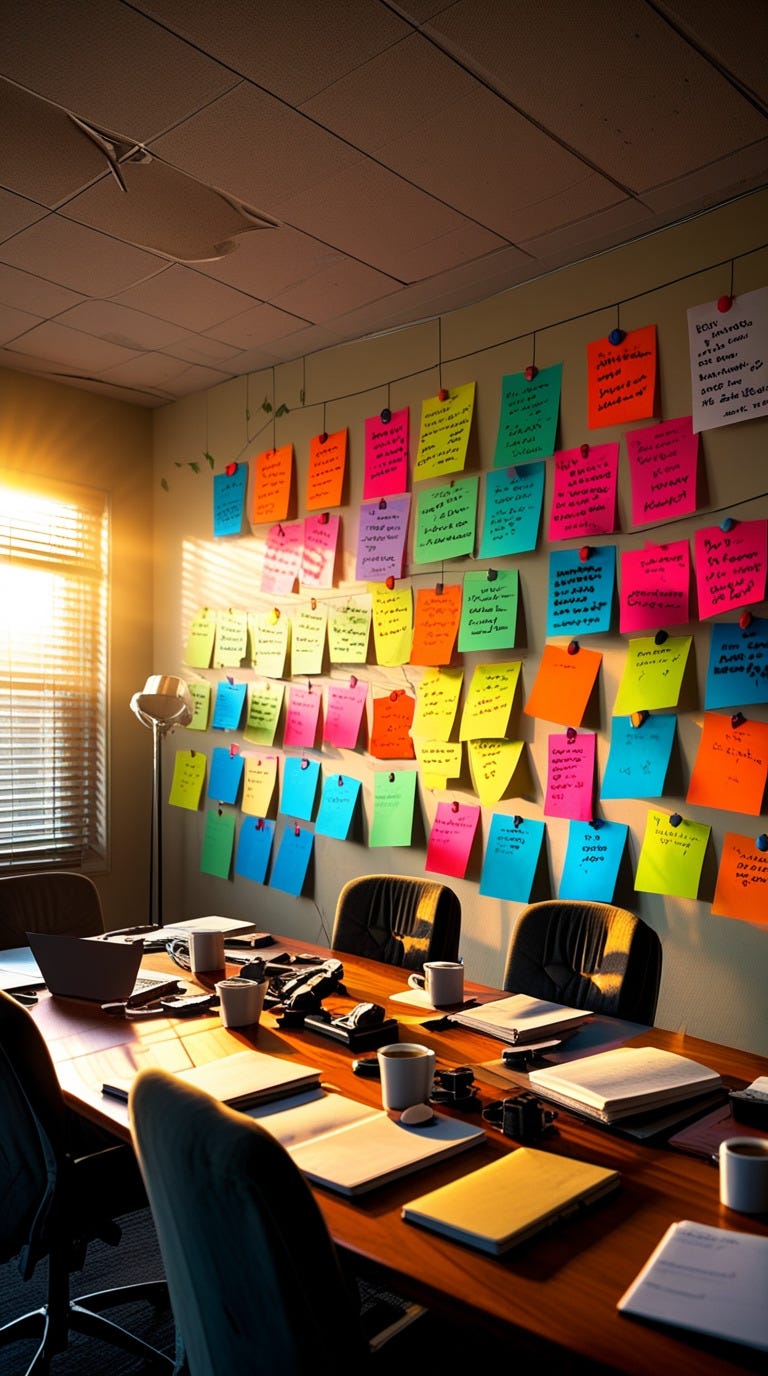Every time I walk into the Rodeo writer’s room, I know how lucky I am.
It’s not just that I am surrounded by amazingly intelligent and creative folks doing incredible work, it’s that I am sitting here at all. Hollywood is filled with exceptionally talented people, and getting staffed on a show, or getting a feature screenplay optioned, or even getting a general meeting with a producer (hell, getting a callback sometimes) has as much to do with luck and timing as anything to do with raw talent.
Without a doubt, this is a particularly tough time to be a writer in Hollywood, and here are just a couple of headlines (and great reads) that only emphasize that reality—
Nevertheless, I am sitting in a writer’s room, and I’ve already had meetings regarding the feature I co-wrote. I can almost feel a certain kind of synergy at work, all the failures and falls and near misses coalescing around these successes. But I also know how fleeting it all is. As I’ve said before, rejection is the standard in this business (maybe now more than ever) so while I’m eager to embrace the wins as they come, I never stop reminding myself that the wins don’t reflect my singular talent. They ‘re a fun house mirror of the world around me, a crazy reflection of a singular moment in time where a few things are falling my way…for now.
You’re never as good as your best reviews and never as bad as your worst, and I think that’s true for this whole business.
Anyway, this week we’re wrapping up our “blue sky” period for Rodeo, and moving into the nitty gritty of actually breaking the first two episodes. We have a general shape for the series—we know the story we want to tell—and now need to start pouring some foundation. I’ve seen it done a couple of different ways, but we’ll probably work in layers—putting down down the main pillars (beats) of the A story line, then the B story, the C etc., across the first two episodes, before going back and filling in the rest (i.e, everything in between). This will all be done on cards on one of our big whiteboards, a version of this—
The cards are beats, the action or inflection points; mainly whatever the hell is going on. I do a similar thing on my novels, but curiously I do as I’m writing my novels, not beforehand—
We’ll do this carding technique for each episode, but the beats (and the cards) will be far more granular. From those cards, an assigned writer will leave the room for a couple of days to complete a detailed outline (usually the showrunner for the pilot/Episode 1, if it was wasn’t already written prior to the room being given a green light) while everyone else in the room starts carding out episodes 2, 3, 4, 5. etc. So, you end up in kind of a round robin process, where one writer is out of the room working on either an outine or the script itself, while everyone else is still in the room, forging ahead on carding out the later episodes. While we have five writers plus a showrunner for our 10 episode series, a network procedural with 20 or more episodes may have a dozen writers or more, all swirling around in this complicated dance of creating, outlining, and writing.
This is one way a TV show is made, and not the only way, but I think many are a variation of this tried and true technique. As a novelist, it’s weird for me to sit in a room and discuss and debate aloud with a group of people things like plot and character and emotionality and theme, but I do enjoy it, and it’s great to see how ideas either get stronger or crack under the pressure of constant iteration and examination.
I mentioned at the top that things have progressed on the feature spec. It’s been exciting to have meetings with folks who’ve read it and are responding to our work. I feel good about where we are now, and where things are headed. It’s a different piece of material than Rodeo, and I think shows my range, plus it’s a feature, as opposed to TV. I’ve worked on a feature before, but this will be my first orginal concept sale. If we strike gold, I’ll peel back that process for you here.
I’m turning in my first pass pages for The Lightning Tree today, and then diving back into the current book.
As always, feel free to—









Encouraging and inspiring! Can't wait to watch this series...
Great post, Todd. Love this quote: "You’re never as good as your best reviews and never as bad as your worst, and I think that’s true for this whole business."